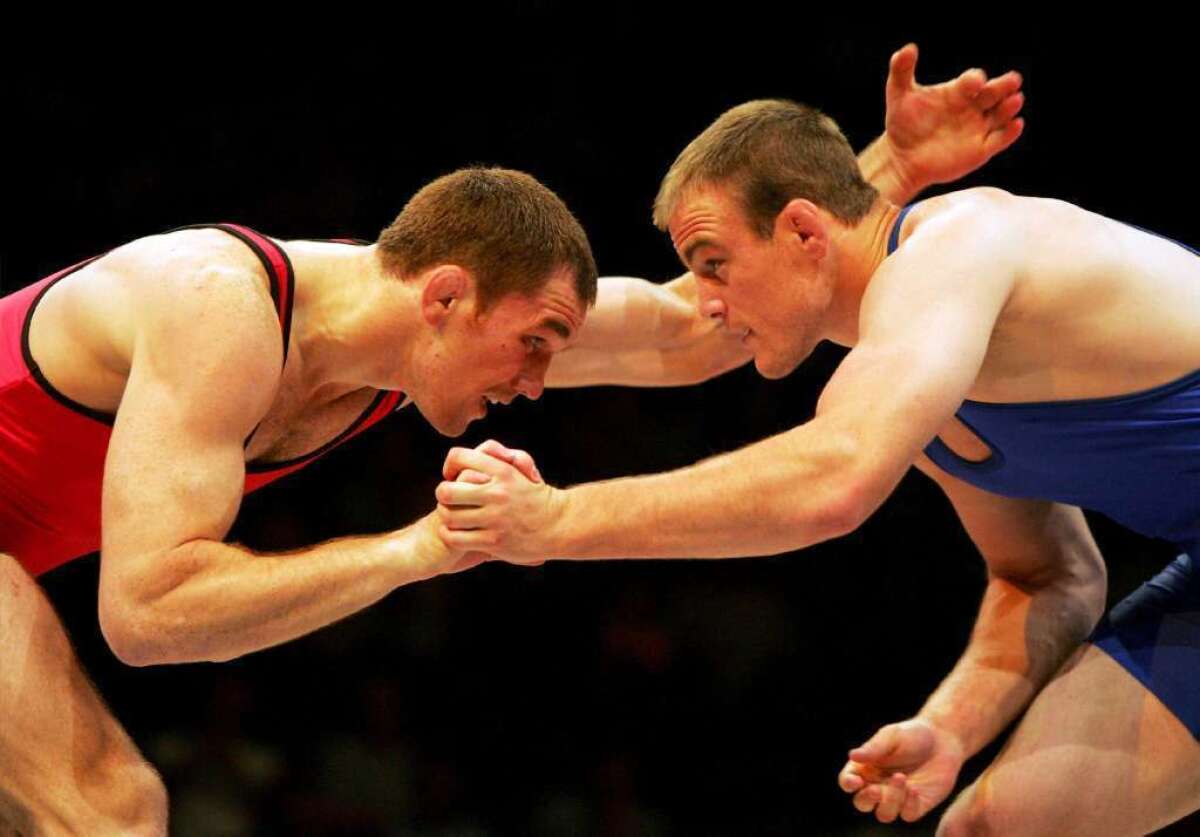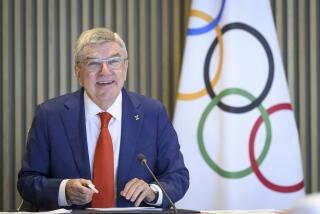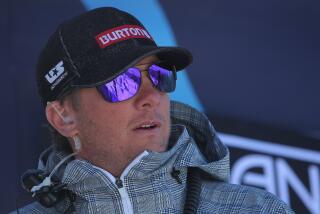Elimination of Olympic wrestling shines light on IOC politics

As burning issues go in sports, the elimination of wrestling from the 2020 Olympics is a pilot light.
What’s more interesting is the strange politics and fractured logic that apparently still exist within the Olympic ruling body, the International Olympic Committee. Suffice to say, these are not the Olympics of your father. More like your grandfather.
For years, the IOC consisted of aristocrats and their offspring. Commoners need not apply. The explanation for that, as made clear during an interview at the Summer Games last year in London with a current non-aristocrat member, was necessity.
“You had to be rich,” said Anita DeFrantz. “It cost a great deal of money to go all the places and do all the things that IOC members did. Nobody’s expenses were paid.”
Modern-day administration and operational procedures, with a nice nudge from the efficiencies and vision of Peter Ueberroth in 1984, made the IOC not only able to pay expenses but to also include a minority female from Philadelphia, a descendant of slaves, in its august body.
But that small step for mankind — or in DeFrantz’s case, womankind — does not necessarily represent any trend toward universal progressivism in the current IOC.
Tuesday, they chopped off wrestling, a sport that had been an Olympic staple since the Greeks ran marathons in loincloths. That was 1896, and you can’t go back any further in modern Olympic history. Wrestling was chosen for elimination over modern pentathlon. That is a five-day event, separate competition for men and women, consisting of pistol shooting, show jumping, a cross-country run, a freestyle swim and fencing. The Olympic wrestling events are men’s and women’s freestyle and men’s Greco-Roman. All are to be eliminated from the 2020 Games.
Several sports, including field hockey, taekwondo and canoeing, were on the chopping block. The vote was close. It was done by the 15-member executive board, but President Jacques Rogge of Belgium did not vote. That left 14 votes and, according to International Softball Federation chief Don Porter, who was at the scene, modern pentathlon survived, barely. Wrestling did not.
Porter is in Lausanne, Switzerland, because his sport of women’s softball was cut from the Games before last summer’s London Games and he is hoping to have it reinstated at meetings in May. So he goes wherever the IOC is and lobbies. Cocktail parties and coffee shops are his life.
“These are their Games,” Porter says, “and we have to play them.”
Reports from Lausanne said that the wrestling federation didn’t push as hard as the modern pentathlon people, that these are games won or lost not on the playing field, but standing alongside a bar, a glass of fine Bordeaux in hand. Reports also cited the importance of Juan Antonio Samaranch Jr., son of the former IOC president, on the side of modern pentathlon.
Now wrestling backers can compete with baseball, softball and other sports applying to be restored or added at the May meetings for the 2020 Games.
The politics behind the elimination of baseball and women’s softball, and the hoops jumped through to try to get back in, are revealing.
Porter was told, in no uncertain terms, that his only chance to get his players back in action was to make a joint effort with baseball. That meant combining amateur softball and baseball into one federation, which he did. Yes, apples and oranges.
Softball was seen as too American and Asian. In IOC circles, that translates to Not European Enough. Reportedly, some IOC members thought the sports were the same. Others lusted after Major League Baseball’s glamour and sponsorship base. That meant that Porter’s softball, as successful as it had been in TV ratings and image-building for female athletes, had to hook its wagon to amateur baseball, which had achieved less success as an Olympic sport, but which had the dangling carrot of possible MLB participation one day. Expect that carrot to dangle into the next century.
Also interesting in this discussion of IOC stumbling and fumbling is the juxtaposition of recent actions. First, the IOC announced it would extend the Sochi Winter Games from 17 days to 18, with extensive competition the day before the opening ceremony. Then, it jettisoned wrestling while sticking to its 25 “core sports” maximum.
So in the winter we have longer Games. Why not in the summer? Add a day and keep wrestling. The limit of 25 core sports is an arbitrary IOC number.
DeFrantz, the former IOC board member, said by phone from France, “If I was given a chance to vote I would not cut any sports. We don’t need to.”
Also fascinating is the influence of American television, or its unexplainable lack thereof. It seems likely that any poll of NBC officials would give wrestling the nod over modern pentathlon. It also is clear that, without gross gobs of U.S. TV money, the IOC would actually be worried about some of those cocktail party tabs.
No matter. The silliness remains part of the IOC mission statement: We will carry on the Games with little thought to logic, vision or accountability. If you don’t like it, tough bananas.
OK, so an IOC mission statement probably wouldn’t use the term “tough bananas.” It doesn’t pass the aristocratic litmus test.
In essence, the IOC has now done the same thing one of wrestling’s greatest Olympic heroes did in the 2004 Games in Athens. In the previous Games in Sydney, Rulon Gardner, from tiny Afton, Wyo., had done the unthinkable. He had beaten Russian legend Alexander Karelin, who had won the previous three Olympic gold medals in Greco-Roman super-heavyweight wrestling and was considered untouchable. Gardner tried to come back in Athens, but with a still-angry Karelin sitting in the stands, he fell short and settled for a bronze medal.
After his last match, Gardner left his shoes on the mat, a wrestler’s symbol of retirement.
Now, in its infinite wisdom, or wandering misdirection, the IOC has left thousands of shoes on the wrestling mats of the world.
More to Read
Go beyond the scoreboard
Get the latest on L.A.'s teams in the daily Sports Report newsletter.
You may occasionally receive promotional content from the Los Angeles Times.







